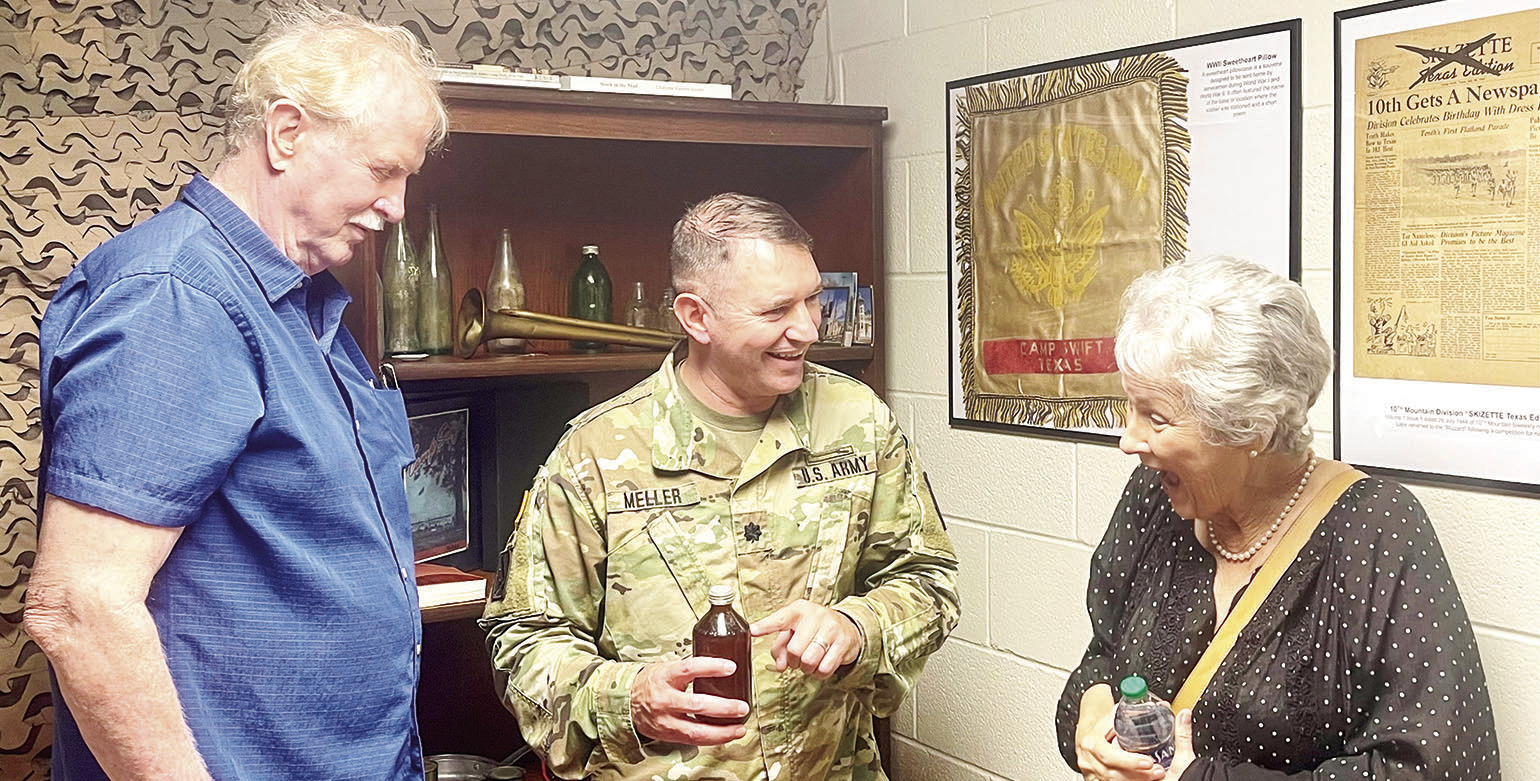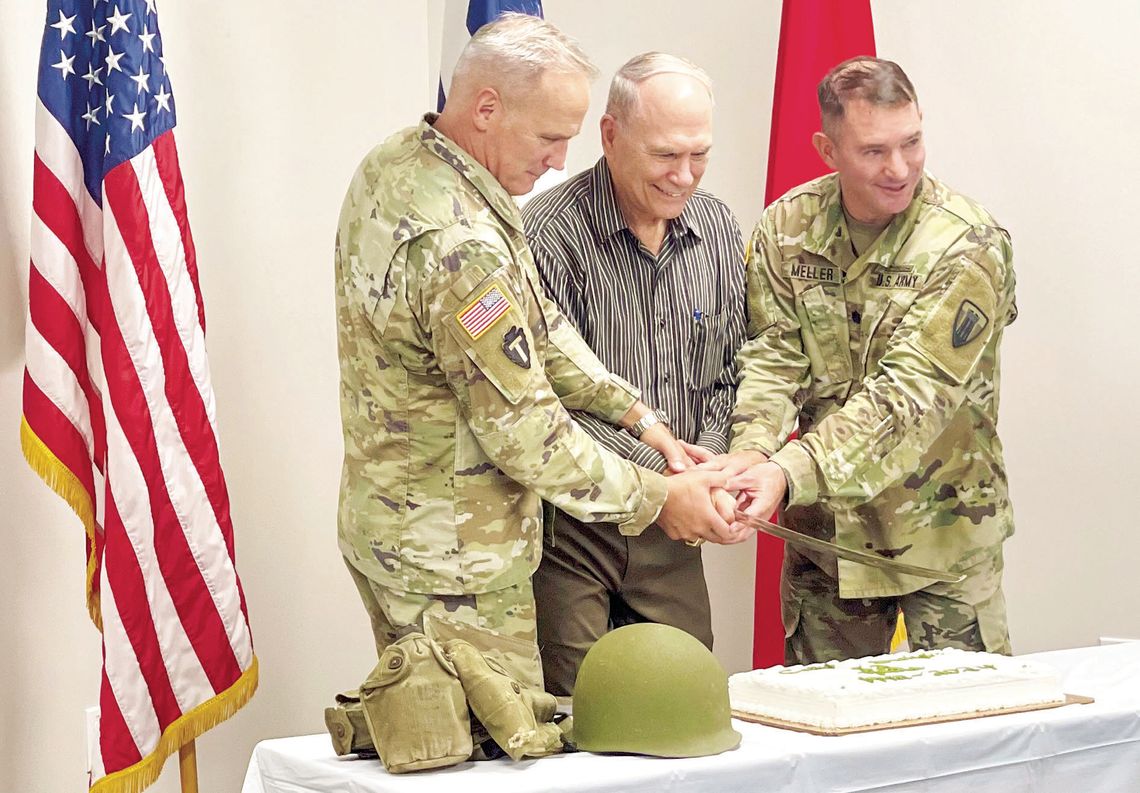82 years of service for training, reserve site
“I am certain that General Swift, if he were to meet the soldiers that are here today, he would be very proud.”
— Maj. Gen. Win Burkett
BASTROP – In the center of Bastrop County lies Camp Swift, a rich-in-history and pivotal military training and reserve site that celebrated its significant 82nd anniversary this past weekend.
Site leader Lt. Col. Joseph Meller brought together facility members, military personnel and descendants of the 82nd Airborne Infantry Division Cmdr. Eben Swift to honor the grounds and its namesake.
“Camp Swift’s history is rich and full of stories, many that are lost, but for the things we do know – it has been a cornerstone in the communities of Bastrop, Elgin and the United States Military,” Meller said to a full room, May 4.
The site first opened in 1942 with 2,750 buildings and accommodations for 44,000 troops, quickly becoming a major combat infantry training camp for World War II soldiers. Training activities included tank maneuvers, weapons firing, personnel and cargo air drops, combat engineering skills, infantry skills, helicopter operations and much more.
At its peak during the war, Camp Swift held 90,000 troops and 3,500 German prisoners of war, making it the largest transshipment and U.S. Army training camp in Texas, forever changing the landscape of the region.
“The relationship we have with the community is just absolutely vital, it’s what keeps Camp Swift and other camps like this around the U.S. functional, and we need that relationship,” added Maj. Gen. Win Burkett.
Like other military sites, after the war, the land was returned to its original owners. Soldiers were shipped back home in 1945, and the grounds were declared a military excess site, with the government still owning 11,700 acres to use as a military reserve.
Since then, Camp Swift has served as the main conduit for soldiers conducting pre-mobilization training and as the center point for staging operations to support civil authorities at the state and federal level.
According to Meller, Camp Swift continues to be an economic and community support force for Bastrop County, contributing $5 million each year to the local economy.
“By virtue of being a guardsman, I’ve driven around the country, I’ve seen a lot of camps. Camps like this one, the significance to our army is just absolutely immeasurable… I am certain that General Swift, if he were to meet the soldiers that are here today, he would be very proud,” Burkett said.
During the presentation, descendants of Swift shared stories of their prestigious family member and presented Meller with dated artifacts for the camp’s new History and Lineage Room, including a 1942 news clipping about the naming of the facility and an original portrait of the major general, a native Texan.
Swift’s first active-duty assignment was on the frontiers of Wyoming, Montana, Nebraska, Idaho and Colorado. Following the Spanish-American War, he was responsible for preparing a district of 300,000 inhabitants at Humacao, Puerto Rico, for civil government, provided valuable relief work, commanded the Second Cavalry in the punitive expedition in Mexico in 1916, organized the 82nd Division in WWI and was chief of the American Military Mission and commander of U.S forces in Italy.
Retiring with the rank of major general in 1918, Swift went on to publish several history books before his death in 1938.

Lt. Col Joseph Meller showcasing some of the artifacts in Camp Swift’s new History and Lineage Room. Photo by Niko Demetriou
.png)







